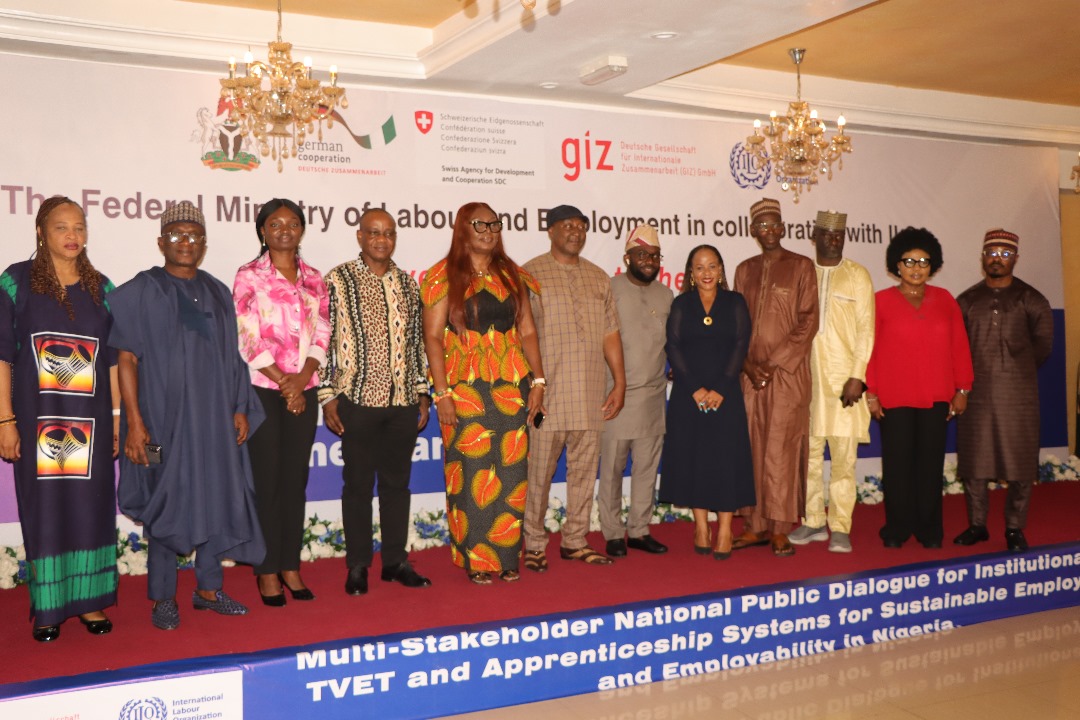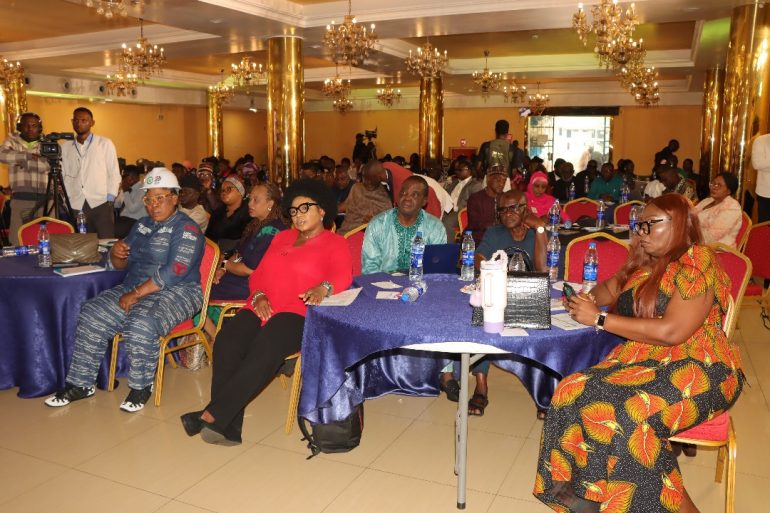Listeners:
Top listeners:
-
play_arrow
104.9FM Best rock music demo
-
play_arrow
Demo Radio Nr.1 For New Music And All The Hits!
-
play_arrow
Demo Radio Techno Top Music Radio
-
 play_arrow
play_arrow
Police Commissioner Launches Weapon and Riot Control Training for FCT Officers Democracy Radio
ILO, FG, Unite to Strengthen Skills, Employment through TVET and Apprenticeship Systems

By Chinedu Echianu
A major step toward addressing Nigeria’s unemployment and skills mismatch challenge was taken on Tuesday as the Federal Ministry of Labour and Employment, in collaboration with the International Labour Organization (ILO) and key stakeholders, convened a two-day National Public Dialogue on institutionalizing Technical and Vocational Education and Training (TVET) and apprenticeship systems for sustainable employment and employability.
The dialogue, held in Abuja, brought together government representatives, organized labour, employers, civil society groups, and development partners to chart a framework for improving skills development and aligning training with labour market needs.
In her keynote address, the Minister of State for Labour and Employment, Nkiruka Onyejiocha represented by the Director, Skills Development and Certification in the ministry, Engr. Tiza Chiila Shaakaa said Nigeria’s persistent unemployment and skills mismatch demand urgent and coordinated policy action.
She noted that a well-structured technical and vocational education policy, backed by decent apprenticeship systems, would serve as a lasting solution to the problem.
According to the Minister, the federal government’s vision is to build an inclusive and sustainable TVET and apprenticeship system that will equip Nigerians with market-driven skills, support the transition from school to work, and formalize informal apprenticeships. “By institutionalizing apprenticeship and skills development systems, we can unlock the potential of millions of Nigerians, reduce unemployment, and accelerate the realization of President Bola Ahmed Tinubu’s Renewed Hope Agenda,” she said.

Delivering a goodwill message, the ILO Country Director for Nigeria, Ghana, Liberia, Sierra Leone, and ECOWAS, Dr. Vanessa Phala, reaffirmed the organization’s commitment to supporting Nigeria’s drive for decent work and inclusive growth. She explained that the dialogue is part of the Strengthening Employment and Employability Systems in Nigeria (SEESIN) project, supported by the GIZ-SKYE II Programme.
Dr. Phala who was represented by Mrs. Chinyere Emeka-Anuna, Senior Programme Officer at ILO, highlighted that the ILO’s focus is to build well-regulated and inclusive apprenticeship systems responsive to labour market demands. She lamented the persistent skills mismatch in Nigeria, where many graduates possess theoretical knowledge but lack practical competencies, leading to unemployment or employment in unrelated fields.
She also noted that despite improvements in unemployment figures — now at 4.3 percent — youth and women still face significant barriers to decent work, with informal employment accounting for 93 percent of the workforce. “Institutionalizing TVET and apprenticeship is a strategic investment in Nigeria’s future. It bridges the gap between education and industry, strengthens employability, and drives inclusive economic growth,” she said.
Representing the Nigeria Labour Congress (NLC), Comrade Eustace Imoyera James commended the initiative, describing skills development as the foundation of productivity and sustainable employment. He said institutionalizing TVET would not only address skills mismatch but also promote entrepreneurship, lifelong learning, and social inclusion.
“For trade unions, this initiative means more Nigerians will be gainfully employed and, consequently, a stronger labour movement,” he added, pledging NLC’s partnership with government and development partners to ensure successful implementation.
The dialogue, attended by representatives of the Nigeria Employers’ Consultative Association (NECA), Trade Union Congress (TUC), and development partners, is expected to generate actionable recommendations for integrating TVET and apprenticeship into Nigeria’s education and employment systems, in line with the National Employment Policy 2025 and the Decent Work Country Programme III.
Written by: Toyeebaht Aremu
Similar posts
Copyright Democracy Radio -2024


